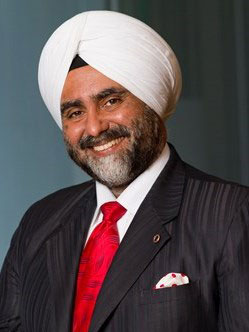HVS ANAROCK Insights - Scaling Up Smart: Hotel Operators Fast-Track Their Expansion Strategy Through Strategic Partnerships | By Mandeep Lamba
From tech-driven budget brand partnerships to midscale acquisitions, strategic deals are fast emerging as a defining trend in India’s hospitality sector. As global and domestic brands double down on the Indian opportunity, many are moving beyond organic growth to accelerate scale, reach, and distribution networks.
India has witnessed several notable strategic partnerships and acquisitions over the years, from Louvre Hotels Group’s 2017 acquisition of Sarovar Hotels to Lemon Tree Hotels’ 2019 strategic acquisition of Keys Hotels and IHCL’s investment in Tree of Life Resorts. Now, with several recent acquisition-led developments, this trend is firmly back in focus. These moves are strategic, aligned with long-term brand objectives, and aimed at bridging critical gaps in segment presence and operational capability.
IHCL made headlines recently with its ₹204 crore acquisition of a 51% stake each in ANK Hotels and Pride Hospitality. The deal brings 135 hotels from The Clarks Hotels & Resorts portfolio into its fold, many set to be rebranded under Ginger. This significantly strengthens IHCL’s midscale presence and puts the brand on track to operate 250 Ginger hotels nationwide.
Accor and InterGlobe Enterprises have also stepped up their game, acquiring a majority stake in Treebo Hotels. With more than 800 properties across 120 cities, Treebo offers deep domestic reach, a tech-driven model, and strong budget-segment expertise. This alliance positions the combined Accor-Treebo portfolio as India’s third-largest hospitality player, with a target of 300 Accor-branded hotels by 2030.
Marriott International is expanding its footprint through a partnership with CG Hospitality and launching a new midscale and upscale-focused brand, Series by Marriott, in India. Backed by a minority equity investment, the deal integrates 84 operational Fern Hotels, approximately 6,000 rooms, into Marriott’s portfolio, supporting rapid growth in the midscale and upscale categories.
Adding to the momentum, Singapore’s sovereign wealth fund GIC has partnered with SAMHI Hotels to create an upscale and upper-upscale investment platform. With a 35% stake acquired for about ₹752 crore, the platform launches with five hotels and over 1,000 rooms, helping SAMHI deleverage and fuel expansion.
Meanwhile, the rumored merger of Radisson Hotels and Sarovar Hotels, if finalized, could create the largest hotel portfolio in India by number of properties, further accelerating consolidation in the sector.
What’s Fueling the Momentum Today?
These developments come at a time when India’s hospitality sector is on a strong growth trajectory. With a branded supply of around 199,000 hotel keys, the industry supported an estimated 2.5 billion domestic tourist visits in 2023 and 9.65 million foreign tourist arrivals in 2024. With just one room for every 12,600 travelers, India has one of the lowest room-to-traveler ratios globally, highlighting a substantial gap in branded supply. India also has a strikingly low number of leisure hotels. Despite robust domestic tourism, supply has not kept pace with demand, leading to higher average rates and making consolidation a compelling strategy for rapid expansion.
As demand continues to surge, particularly in Tier-2, 3 & 4 markets, companies are seeking quicker and more efficient ways to scale. While organic growth remains a key pillar, it is time-consuming and capital-intensive. By contrast, strategic acquisitions offer a faster path to market expansion by providing access to operational systems, distribution networks, and local expertise.
Today’s wave of deals marks a shift in strategy: brands are not just adding room inventory but diversifying across segments and geographies. The focus is now on building a stronger, more diversified presence across segments. The Accor-Treebo partnership, the Marriott-CG Hospitality alliance, and IHCL’s recent acquisitions all center on the budget and midscale categories, which are expected to anchor the next wave of growth. There is also growing interest in tech-enabled platforms that offer operational efficiencies, improved guest acquisition, and dynamic pricing models.
As the sector matures, more mergers and acquisitions are expected to follow. Listed hotel companies, in particular, are well-positioned to expand both organically and inorganically, backed by fresh capital raised through IPOs. With thousands of unbranded hotels still operating in India, the pipeline for strategic deals remains strong. These moves also signal growing investor confidence in India’s long-term hospitality potential and are likely to attract increased attention from private equity and institutional investors.
Strategic partnerships and acquisitions will continue to play a pivotal role in shaping the future of Indian hospitality. As the world’s fourth-largest economy, India’s rising per capita income and discretionary spending will fuel sustained growth in the travel sector. By bridging gaps in scale, capability, and market presence, strategic deals provide a compelling, accelerated path to growth, one we can expect to see more of in the years ahead.
Click here to view the original version of this article.
Mandeep S Lamba
President (South Asia), New Delhi
Phone: +91 (124) 488 5552
Email: mlamba@hvs.com
HVS
https://www.hvs.com/
1400 Old Country Road, Suite 105N
USA - Westbury, NY 11590
Phone: +1 (516) 248-8828
Fax: +1 (516) 742-3059
Europe Hotel Transactions Bulletin - Week Ending 29 August 2025
Galveston’s Lodging Sector Evolves with Cruise Growth, Supply Changes, and Regulatory Shifts | By Bunmi Oyinloye
Canadian Lodging Outlook Quarterly 2025-Q2

